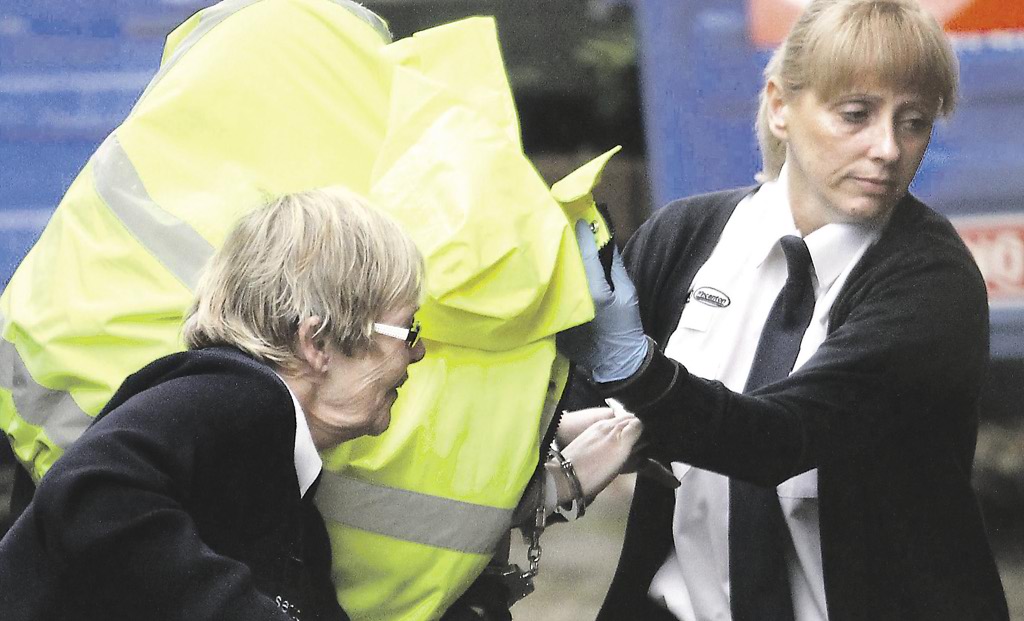A South African mother loved her three disabled children dearly and exhausted herself financially and emotionally to ensure their well-being before eventually killing them, a senior judge said in a UK court on Tuesday.
Justice Sweeney sentenced 43-year-old Tania Clarence to a hospital order on this basis on Tuesday, finding that her responsibility and culpability were low in light of her prolonged battle with major depressive episodes, the British Press Association reported.
Sweeney told Clarence she would not be released until she had recuperated from her illness.
Clarence pleaded guilty to manslaughter by diminished responsibility of Olivia, four, and three-year-old twins Ben and Max at the family home in New Malden, south-west London, over the Easter holidays.
The children, who suffered from the muscle-weakening condition SMA type-2, were found dead, tucked into their beds with toys arranged around their heads as if on a “bier” lying in state.
The Old Bailey in London found that Clarence’s family had a history of psychiatric illness. Her grandmother committed suicide and her mother attempted to end her life when her marriage ended.
Clarence had a lonely and unhappy childhood in which she learned not to share her feelings with others, forming a personality characterised by low self-esteem, difficulty in forming close relationships, and emotional scarring.
While in a long-term abusive relationship with a boyfriend at a South African university she suffered a depressive episode that lasted for around two years.
She married her husband Gary in 1994 and suffered a second episode of depression in 1998, which lasted for a few months.
Clarence struggled to look after her four children, three of whom needed wheelchairs, in their small home.
Sweeney noted in his sentencing judgment the amount of strain Clarence had been under in the years to follow in trying to meet the children’s needs.
She and her husband spent all the money they had, as well as all the money they could borrow, to buy and adapt a house so the children could move around in wheelchairs.
“You did not want either the house, or the children to be institutionalised and later (once the children were of school age) you enjoyed a good relationship with their schools,” the judgment stated.
“To that end your husband worked all hours to make the necessary money, and you devoted yourself entirely and ceaselessly to the care of the children.”
The mother left a series of notes the day of the killings, including one to her nanny and her husband.
The court was told Clarence repeatedly clashed with doctors during a long history of the children’s medical treatment in and out of hospital.
Clarence’s attitude was that their quality of life was more important than its length and she preferred to opt for palliative care over more invasive treatment.
On one occasion, she said: “Gary and I do love our children just not in the way you want us to.”
In May 2011 a doctor noted that Clarence was “seriously over-stretched/under intolerable strain” from all the medical appointments.
At the end of 2012, she told medics that she did not want to see her children’s suffering prolonged and “if they were in South Africa they would go to the top of a mountain and die”.
She also admitted to medical staff that she was suffering from depression on more than one occasion, yet did not follow through with therapy.
Just before the killings, Clarence had been resisting agreeing to a gastrostomy for Olivia that doctors had urged because of fears that she was underweight.
The dispute also coincided with the appointment of an inexperienced social worker from Kingston Borough Council who replaced a woman who had resigned in disgust after being moved off the case because she had got too close to the family, the court heard.
At a meeting on March 24, the new social worker presented Clarence with a list of subjects for discussion including gastrostomy, physiotherapy routines, spinal surgery, her mental health — all of which she found “overwhelming”.
In April, Mr Clarence urged “tact” as he finally agreed to a gastric button for Olivia, but at the same time, Kingston social services called a meeting to discuss the possibility of instituting child protection measures.
The social worker ignored his plea and during a visit on April 16 suggested to Clarence a gastric button for the twins next. Days later, all three children were dead.
A Kingston Council spokesman said: “Throughout the lives of the children, we sought to work with partner agencies to ensure that the Clarence family were fully supported. This was provided through a range of services including therapies, care support into the home and direct payments to the family to assist with the costs of their nanny.
“The Local Safeguarding Children Board is currently undertaking a Serious Case Review. The partnership will ensure that any learning from this review is incorporated into the work with children with disabilities and their families.”
In handing down the court order, Sweeney found that any planning of the murders on Clarence’s part were a product of her mental illness and that her views on her children’s medical treatment did not add to her culpability.
He rejected the contention that her failure to obtain treatment for her depression added to her culpability and was a product of her personality and mental illness. SAPA






 WhatsApp us
WhatsApp us 

